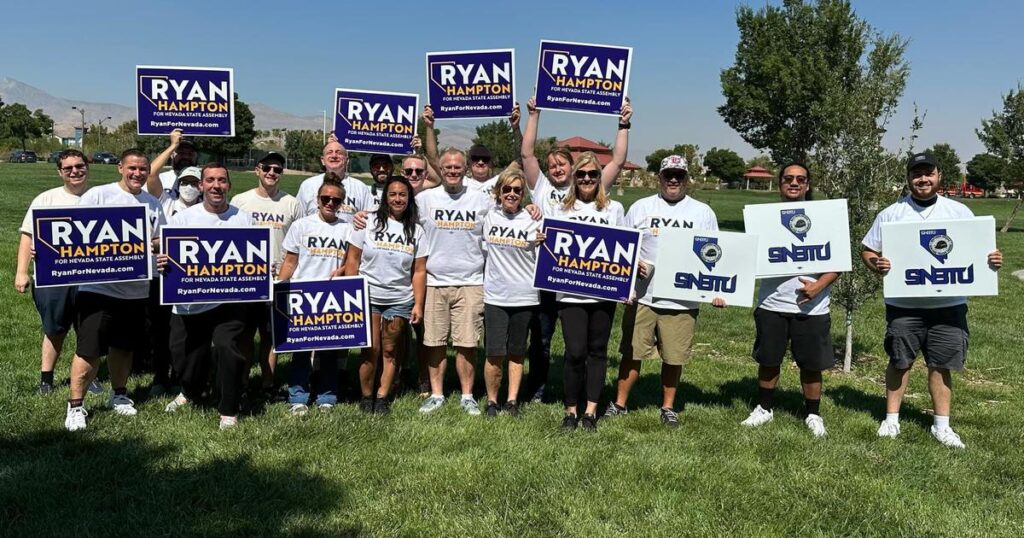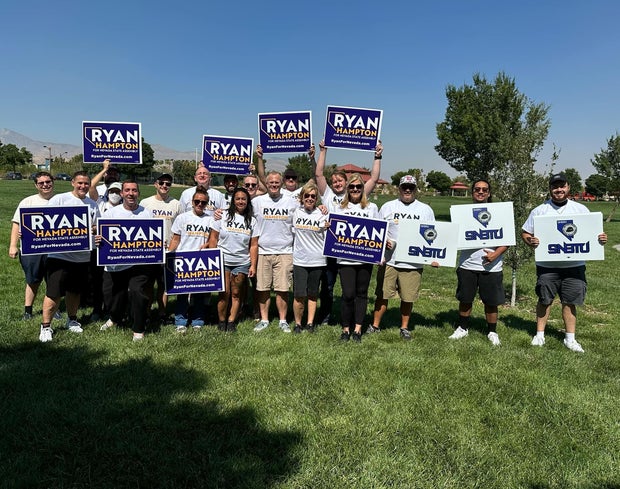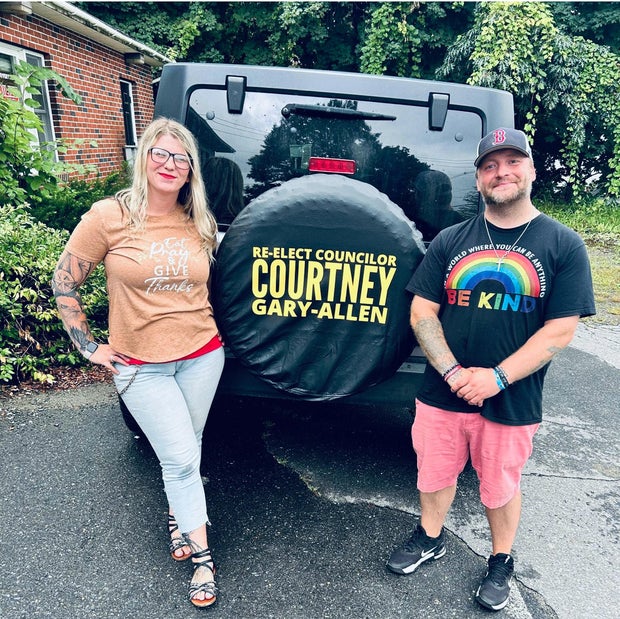[ad_1]
Thomas Higdon was a politics fanatic his entire life: He kept up on the news cycle, he door-knocked for candidates, and he volunteered for a number of campaigns.
He long dreamed of working in government, but he and everyone around him felt it wouldn’t be possible because of his substance use. His use of alcohol and other drugs began causing problems when he was in law school in the mid-1990s, and in 2014, the consequences of his substance use left him living under an overpass. He is now abstinent from the drugs, but even years later, he felt he had ruined his chances of running for office.
“I allowed this internalized stigma, over decades, to blind me to what I could really do,” Higdon, now 52, told CBS News.
That thought stayed with him for years. He moved into grassroots organizing and advocacy spaces, but in 2023, he learned about the Recovery Advocacy Project’s upcoming “Run for Recovery” program — and realized that working in public office might still be possible.
Building a political bootcamp for people in recovery
Courtney Gary-Allen, who began using drugs at a young age and overdosed multiple times before getting sober in 2015, has successfully run for office twice. In 2020, she was elected to the position of at-large City Councilor in Augusta, Maine. She was reelected to the same role in 2023. Both times, she won in a landslide, but the experience made her realize the need for a campaign bootcamp centered around people in recovery. Similar bootcamps are conducted by major political parties, but she wanted to create a bipartisan space tailored to the recovery community’s specific experiences and needs.
“For the last decade or so, the recovery movement in America has been very focused on telling our stories and advocating and pushing for better policy around substance use disorder and recovery efforts, and I think this is a new chapter in the story of the recovery advocacy movement,” said Gary-Allen, who is also the organizing director at the Maine Advocacy Recovery Project. “We’re no longer just advocating to policymakers. We are running for office to become the policymakers that are making decisions around these issues and many more.”
From that idea, Run for Recovery was born. The program graduated its inaugural class, made up of five Democrats, five Republicans, and five Independents, in August 2024. The 15 participants were selected from across the country. Once a month for a year, they met online to talk the ins and outs of mounting a campaign. Lessons ranged from learning about finance laws to drafting position statements to preparing to talk openly about their substance abuse.
Higdon was one of the selected participants. Even though he had “been around campaigns all (his) life,” he said the Run for Recovery class educated him about the technicalities of running for office. But it wasn’t just the classroom learning that inspired him. When he started the class, “there was still that sort of nagging voice in the back of your head of ‘You can’t run,'” Higdon said. The time with his classmates helped change his perspective.
“I just can’t express how good it felt to be around people who also wanted to do this thing,” Higdon said. “There are a number of reasons why I ultimately may not run, but fear of what people will say and that stigma won’t be one of them.”
Mobilize Recovery founder Ryan Hampton, who completed the Run for Recovery program and is campaigning for a seat in Nevada’s state assembly, said that stigma has affected his campaign. He said his campaign has been subject to attack ads bringing up his history of substance use and calling his policy positions to a “dangerous drug agenda.”
Ryan Hampton
It’s a stressful time, Hampton said, but lessons he’s learned throughout his recovery journey and from the Run for Recovery program have helped him continue his campaign.
“I am certainly the underdog in this race, but I’m used to it,” Hampton said. “Am I afraid of losing an election? No, I have lost a lot more in my life than an election. I am not afraid of losing. I’m running to win, but I’m also running because I believe our community is yearning for something different.”
Growing a movement
There’s no compiled list of every single person in recovery running for office. Gary-Allen said she was aware of several people in recovery running for office in Maine. Higdon is weighing a run for a seat in Maryland’s state legislature. Racquel Garcia, a Run for Recovery graduate who holds an appointed position in Colorado, is considering a campaign for a state position in 2026.
Courtney Gary-Allen
Gary-Allen said she hopes to see more of the Run for Recovery program graduates start their own campaigns — and see others in recovery, even people who didn’t go through the program, make the jump into politics.
“I think we’re on this cusp of a revelation. Not only are people in recovery voting and showing up and advocating, we’re running for office, and we’re going to serve in these seats,” Gary-Allen said. “We’re going to help create solutions to substance use across the country. I’m excited for the next couple of election seasons.”
[ad_2]
Source link



